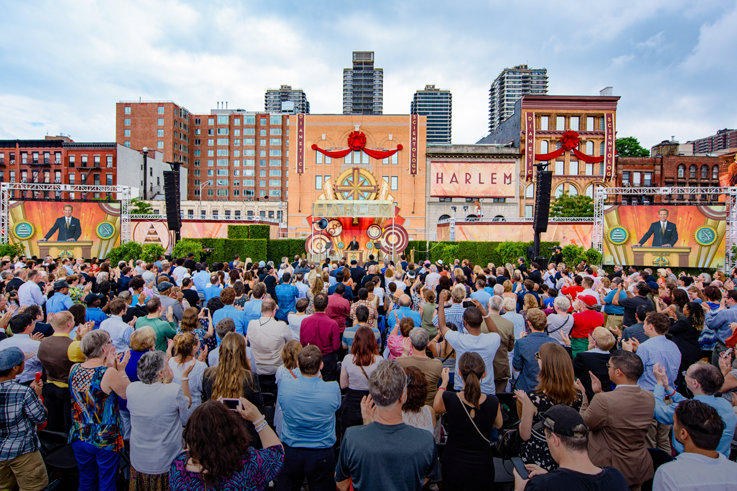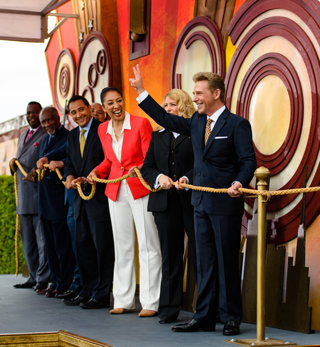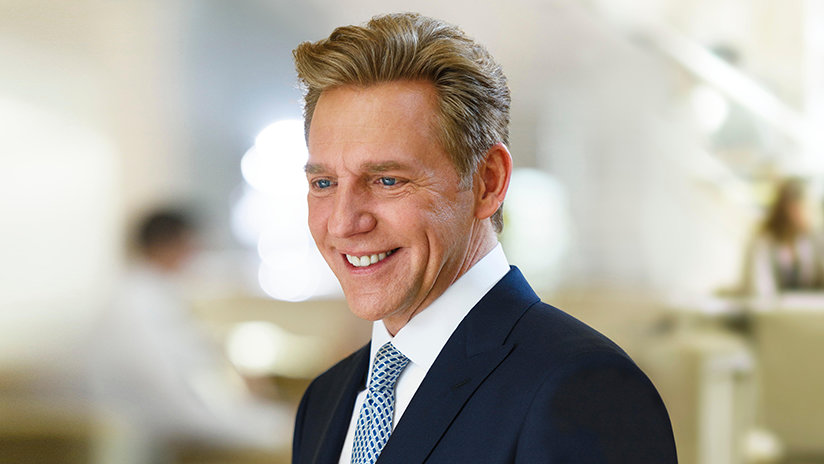
-
HOME
-
WHAT IS STANDOur Mission Our Values Our Help Contact
-
WHAT WE FIGHT FORReligious Freedom Religious Literacy Equality & Human Rights Inclusion & Respect Free Speech Responsible Journalism Corporate Accountability
-
RESOURCESExpert Studies Landmark Decisions White Papers FAQs David Miscavige Religious Freedom Resource Center Freedom of Religion & Human Rights Topic Index Priest-Penitent Privilege Islamophobia
-
HATE MONITORBiased Media Propagandists Hatemongers False Experts Hate Monitor Blog
-
NEWSROOMNews Media Watch Videos Blog
-
TAKE ACTIONCombat Hate & Discrimination Champion Freedom of Religion Demand Accountability
Why
David Miscavige Is Listening to Harlem
Really, any relationship comes down to knowing you are heard and understood—whether it’s between mother and child, father and son, teacher and student, coach and player, mayor and city or even two nations.

I still remember standing in the auditorium of our Church’s spiritual headquarters in Clearwater, Florida, over 15 years ago, right after an event we had held. There, I saw the ecclesiastical leader of my religion, David Miscavige. He was speaking with a group of about five people, some of whom I knew.
Actually, he was mostly listening.
One woman in the group who was speaking directly to Mr. Miscavige was a friend of mine who had taken on the responsibility of opening a Scientology Mission in Harlem. As an African American, I am always looking to introduce my community to L. Ron Hubbard’s highly workable spiritual technology, and I loved what she was doing. After all, what better place to have a Church of Scientology than right in the cultural capital of Black America, Harlem?
I have other friends who have told me how much David Miscavige listened closely when it came to Harlem.
From what I could tell from where I was standing, my friend looked like she was “downloading” directly to our ecclesiastical leader about Scientology in Harlem, and he was intently listening for over half an hour.
New Ideal Churches of Scientology were opening with greater and greater frequency around the globe, and Mr. Miscavige was more than busy with these and many other priorities. But here he was taking the time to really listen to my friend about Harlem.
I have other friends who have told me how much David Miscavige listened closely when it came to Harlem.
Soon after, it was decided that our Church in Harlem was a Church of such importance that its transformation to an Ideal Church would be sponsored by the International Association of Scientologists, rather than the local congregation. David Miscavige, the leader of our entire religion, even came to Harlem, boots on the ground, to see for himself what we were working on and to help ensure we had found the ideal new home for our Church.

Fast-forward to July 31, 2016, and we held the grand opening of the Ideal Church of Scientology Harlem and Community Center. Ours is one of only a few Churches of Scientology on Earth that have a full Community Center in addition to the Church itself.
At the time, there was no place on 125th Street that offered spaces for community groups to come together and meet, let alone one that opened their doors to all for free, like our Community Center. Mr. Miscavige knew we needed this in Harlem.
In the eight years since our opening, we have hosted many, many, many local events, film festivals, United Nations human rights groups, fashion shows and civic club meetings with local leaders, law enforcement groups, international cultural bodies, as well as world-renowned musicians like Stanley Clarke. The list of celebrations and partnerships and projects to uplift the community goes on and on. We are working every day toward a drug-free, crime-free Harlem, where the able can prosper and honest beings can have rights, and where Man is free to rise to greater heights, exactly per the Aims of Scientology.
Many times, watching it all unfold, I have thought back to something L. Ron Hubbard wrote at the height of the civil rights era—a letter addressed to Black Americans and dated January 3, 1961. It is only eight paragraphs long, but what it makes clear is that L. Ron Hubbard wanted us as a people, here in this country, to know that he heard us and our cries for equality and human rights.
L. Ron Hubbard wrote the message when Scientology was less than a decade old. We were a new Church, still undergoing our own “growing pains,” and yet Mr. Hubbard extended an open door to Black Americans in particular, so that they would feel welcome to study Dianetics and Scientology.
The last paragraph of his message is my personal favorite: “Look into Scientology and use it to help your own people. Let them truly walk in the sun and take their place among the most brilliant people of Earth.”
L. Ron Hubbard’s invitation to Black communities to study this new religion so that all could benefit from it is something David Miscavige clearly never forgot.
So when the ribbon fell on our beautiful new Church in Harlem, it was especially emotional for me as I watched the vision of my religion’s Founder being fulfilled, thanks to David Miscavige. I watched as throngs of people of all races entered our Church on 125th Street, the iconic street that is Harlem, and knew they would find help there.
As someone who has been a Scientologist for more than 50 years now, David Miscavige’s dedication to ensuring that Mr. Hubbard’s dream came true for the Black community inspired me to return to my hometown of New York City and become an executive at the Church of Scientology Harlem.
The same interest and the same care that I witnessed Mr. Miscavige display with a small group of Black Scientologists after a Church event is what each group that has struggled to be heard and understood seeks. It is what calms turbulent times and moves a culture forward.
Mr. Miscavige really gets what we as a people desire—and he continues to listen. I have letters from him responding to my personal wins as a Scientologist and they truly speak to his interest in others and his willingness to grant importance to everyone who he meets.
This is something I try to emulate as I care for and introduce members of my community to the Scientology religion here in Harlem. And as I listen to their needs, I know how to direct them to the answers they have been looking for.
But first I let them know that they are heard and understood, just like our leader, David Miscavige, does.









